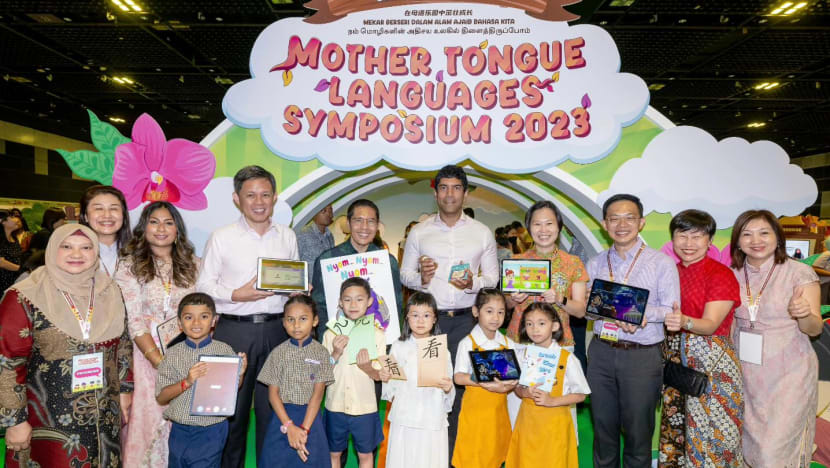New mother tongue curriculum for Primary 1 students from 2024
SINGAPORE: Primary 1 students will have a new mother tongue curriculum from next year, Minister for Education Chan Chun Sing announced on Saturday (Aug 26).
The refreshed curriculum, which will be rolled out progressively, will involve the use of more games and technology during lessons.
Students can also look forward to song and dance, and the use of augmented reality and electronic reading pens for Tamil – the first of its kind for language learning in Singapore, said Mr Chan at the 12th Mother Tongue Languages Symposium.
The new curriculum was piloted at 35 primary schools this year.
It comes after a 2020 survey by the Institute of Policy Studies found that mother tongue proficiency was down.
More than a third of Singaporeans also identified the most with English, growing at the expense of those who relate to their mother tongue.
Mr Chan called this a major concern, and a threat to what he describes as Singapore's “bilingual edge”.
“This is an important trait for Singaporeans. In an increasingly competitive world, we know how to value add to others when we synthesise varied ideas and integrate different perspective. So bilingualism is a passport that we can really cherish beyond the physical passport.”

Mr Chan also assured parents that "even if more time is devoted to mother tongue in the early years, it is unlikely to significantly affect our children’s English proficiency in the long term".
"Young children who primarily use their mother tongue languages might initially show weaker English skills compared to those who exclusively use English at home," he said in his address.
"However, the brain's neuroplasticity, its capacity to adapt, comes into play. As these children are gradually exposed to the extensive use of English in school and society, their brains will adjust, and their English proficiency will improve over time."
Beyond strengthening mother tongue capabilities, the new curriculum also aims to build cross-cultural literacy and understanding.
An example would be how the new Primary 1 Malay textbook introduces students to lumpia – a Filipino spring roll that is similar to the Chinese or Indonesian variety.
“Similarly, for Tamil, students will learn about top spinning and how tops feature culturally across India, Malaysia and China. Through these examples, students will better appreciate cross-cultural similarities and better connect with their friends,” said the Education Minister.
The Ministry of Education (MOE) said in a separate press release that teachers will continue to employ “multi-modal” approaches, including the meaningful use of technology, to engage and support students.
This includes the potential harnessing of AI tools such as ChatGPT.
“Students can look forward to more extensive use of gamification and differentiated resources, to sharpen their language skills at their own time and pace beyond the classroom," said MOE.
"Parents are encouraged to tap on these resources to support their child’s learning of mother tongue languages at home.”
MOE added that it considered feedback from over 11,000 students, 1,000 teachers, and 4,000 parents on the previous curriculum in the development of the refreshed one.
Additional reporting by Ernest Loy.














